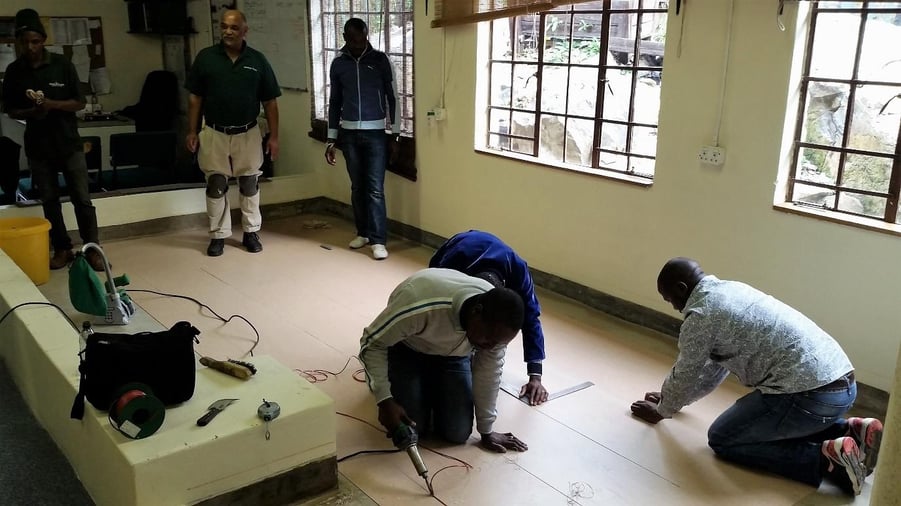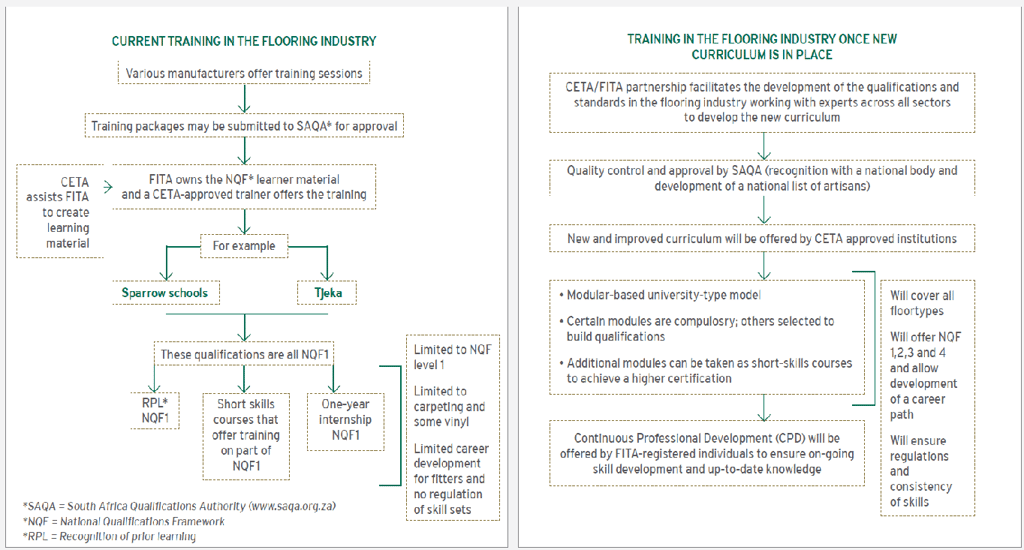FITA is changing the skills landscape in South Africa but it’s a painstaking process. See what you can do in the interim to facilitate the process whilst ensuring a quality installation.
Vinyl requires expert installation, which means that skilled, regulated and consistent staff are essential. At present, however, training and career development for fitters in the flooring industry are poorly regulated, somewhat ad-hoc and inconsistent. In addition, accredited training is outdated and not representative of all flooring types. This is challenging for business owners and our local industry is feeling the effects of a poorly trained and managed workforce.
Fortunately, there is light at the end of the tunnel in the form of an industry/government partnership between the Flooring Industry Training Association, FITA and the governmental Construction, Education and Training Authority, CETA.
FITA’s mandate is ‘To represent the flooring industry and officially facilitate accredited training and registration of flooring installers nationally; including a National Register of installers throughout South Africa.’ It was formed with the backing of South African flooring manufacturers, stakeholders and contractors and it has formally partnered with CETA to develop new qualifications and standards.

FITA is currently playing a major role in the development and facilitation of accredited training, working with flooring experts on a CETA-funded project which will significantly upgrade industry training (and ultimately performance).

But what can you do whilst waiting for the FITA/CETA initiative to kick in and make an impact?
- Ask your supplier for on-site training. Trusted suppliers offer on-site training and technical assistance (usually at the start of a project). Discuss this option with your flooring supplier to ensure your staff get the help they need, without having to leave site.
- Use your highly skilled staff to train up newer staff in the right way, from the first time they come to site.
- Make sure your team have the correct specialised tools and equipment. This makes such a difference to the end-product.
- Keep your staff happy so you don’t lose them. Pay fair wages and offer fair benefits and working conditions. Consider career development and additional-skills development so your staff feel valued and empowered.
- Provide constant on-site supervision and make sure you and your team are 100% aware of each project’s requirements and the standard of work expected. A suitable frame of reference is always a good idea.
- Make your staff aware of the imminent legislation changes and encourage them to empower themselves.
The diagrams below summarise how the new training curriculum and accreditation will work relative to the old. More detailed information is available on FITA’s website and Facebook page.

For more advice from our vinyl flooring specialists, why not download our latest eBook, Flooring contractor's guide: Developing and growing your business with vinyl flooring.
